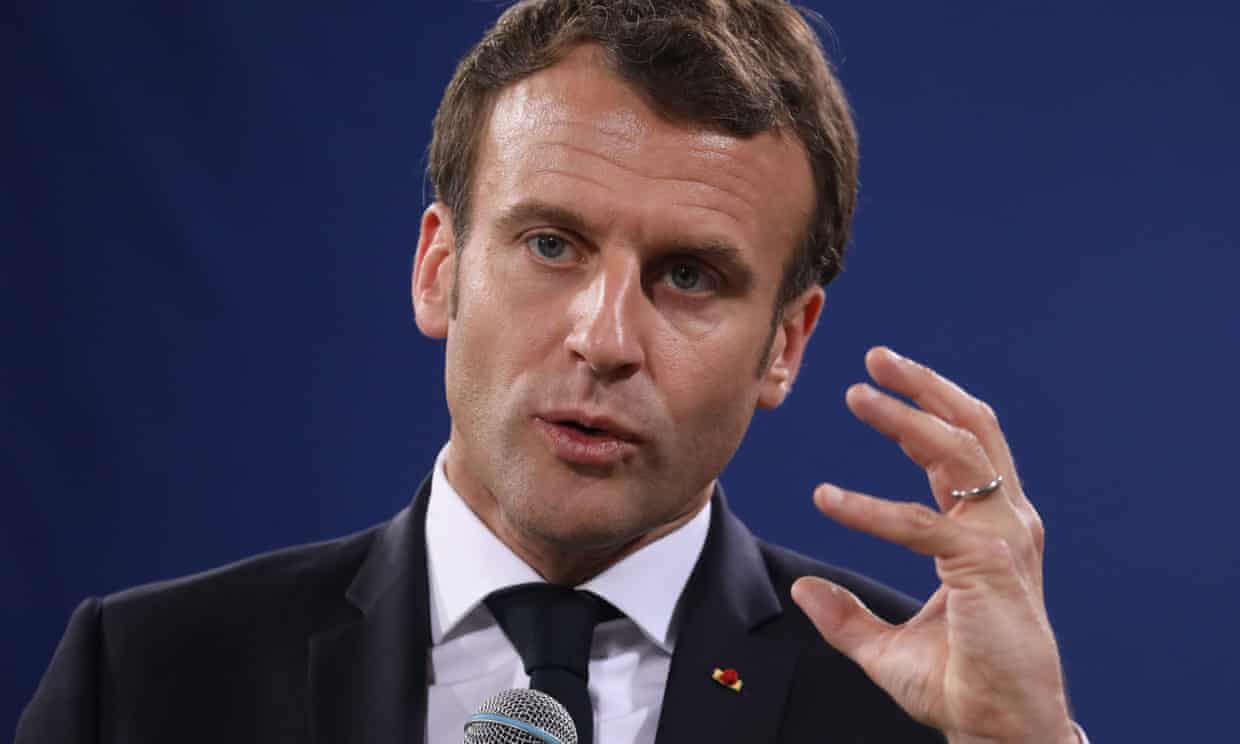
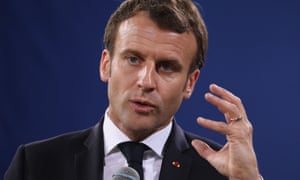
At the beginning of the 1930s, France had one of the strongest economies and richest cultures on the planet, a large global empire and the biggest army in Europe. Yet the country that gave the world Monet, Proust and Voltaire suffered something resembling a national nervous breakdown during that decade. Governments were formed and collapsed with dizzying rapidity. Much of the nation was still traumatised by the First World War, its elite was demoralised and the leaders of its forces defeatist. This presaged the lightning conquest of the French by Hitler’s armies in the spring of 1940 and the many horrors that followed until liberation by the allies in 1944.
In the 1970s, Italy was afflicted by an ugly combination of industrial strife, social conflict and political terrorism, which included the kidnap and murder of Aldo Moro, a former prime minister. For the country that gave the world Galileo, Leonardo and Michelangelo, this period was so nasty that it became known as anni di piombo, “the years of lead”.
The dark chapters of Germany’s 20th-century history are so well known they do not need rehearsing.
Brexit has driven Britain down a very rocky road, but more gruesome fates have befallen others
I mention these examples from the relatively recent past to illustrate that Britain’s long national nightmare over Brexit is not as unusual as some might suppose. The history of the world is punctuated by examples of highly sophisticated, cultured and prosperous nations self-harming and often inflicting great misery on neighbours in the process. Countries, just like people, can make terrible life choices. Countries can take wrong turnings. Brexit has driven Britain down a very rocky road, but more gruesome fates have befallen others. Many of our neighbours have gone through much worse – only to subsequently recover their sanity.
I hope that European leaders bear this in mind when they meet this week to consider granting a second delay to Britain’s withdrawal from the EU. A further extension will require the unanimous consent of all 27 and it is not a given that they will oblige. The exasperation with Britain in European capitals is as palpable as it is entirely understandable. None of them willed Brexit, as European politicians often like to remind their British counterparts. Britain inflicted Brexit on itself.
The EU has spent many painful months negotiating a withdrawal agreement that involves quite a lot of significant concessions from its point of view. An aspect of the Brexit imbroglio that is always under-reported in Britain is that quite a lot of the EU’s leaders don’t much like the exit deal that was struck with Mrs May because they feel that it gives too many privileges to the departing member. The European commission and European leaders have spent a lot of time on this, time they didn’t have to waste when they need to focus on their own considerable challenges. Yet the British government and parliament have proved utterly incapable of signing off on the agreement or coalescing around an alternative to get us out of this toxic swamp.
No one is making big bets that there will be a successful outcome from the talks, currently stalled, between Theresa May, Jeremy Corbyn and their lieutenants. Neither leader is a natural at the art of compromise and both are fearful of risking any movement that could detonate their respective parties. The EU has also clocked that the people most instrumental in willing Brexit on Britain – Boris Johnson and his chums – have been the principal saboteurs of the agreement. There are several reasons why Mrs May has not been able to get her deal through the Commons, but the most important of them is the blind intransigence and limitless foolishness of the Tory ultras.
It is hardly surprising that there are voices in the EU, those of the French being the loudest, asking what is to be gained from dragging out the pain. Emmanuel Macron is taking the hardest line on resisting an extension without a clear plan from Britain to resolve this nightmare. European leaders would only be human if they threw up their hands in despair and told Britain to go ahead and plunge on alone with a disaster of its own making.
They also have legitimate anxieties about allowing Britain to carry on as a half-in, half-out member. Some worry that Britain will use an extended period of membership to sabotage European decision-making, especially over appointments and budgets. The Tory ultras are trying to stoke those fears, none more recklessly than Jacob Rees-Mogg with his deliberately inflammatory suggestion that Britain should be “as difficult as possible” during any extension. He wants a crash-out Brexit and is trying to provoke European leaders into granting him his wish.
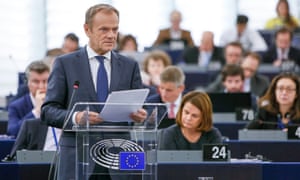
Mrs May is attempting to soothe their concerns, pledging in the letter requesting an extension that the EU will have the “sincere co-operation” of Britain. But can the EU be sure that her successor, whoever that might be, would honour that promise? At a recent summit, Mrs May asked Jean-Claude Juncker, who is due to retire this summer, what guarantees she had that his successor would stick to agreements they had struck. The commission president fairly replied: “What guarantee do I have that you won’t be replaced by Boris Johnson?” The prospect of prime minister Johnson fills EU leaders with dread after their experiences of dealing with him during his inglorious period as foreign secretary and observing his subsequent antics. They will be bound to seek insurance to protect themselves from British mischief-making.
There’s also an immediate fear about our participation in next month’s elections to the European parliament. Prolonging the Brexit agony could be fuel for rightwing populists in other European states, though in truth they are likely to do well in those elections whether or not Britain is still a member of the EU.
While understanding Europe’s utter frustration with Britain, we should be hoping that they do not succumb to their exasperation. It would not be a good look for the EU to effectively eject the UK without a deal, even if that was almost entirely the UK’s fault. The EU thinks of itself as bigger than that, as Donald Tusk recently reminded his colleagues in an impassioned speech to the parliament that urged Europe not to abandon its many friends in Britain. In a threatening world, Europe should ask itself which foreign leaders would be first to celebrate a calamity Brexit? That would be Donald Trump and Vladimir Putin, neither of whom is a friend of the EU.
Most surveys suggest that support for EU membership among continental voters has strengthened since Brexit
A car-crash Brexit is no more in the EU’s interests than it is in those of the UK. It would be atrocious for Britain. It would be awful for Ireland, to which the EU owes a duty of care. It would be painful for others, especially France, Germany, the Netherlands and Belgium. Europe as a whole is not in good shape to withstand an economic shock when many of its countries are teetering on the edge of recession and some are already suffering it.
One argument for allowing Britain to go to hell in this handcart of its own construction is that it would administer a salutary lesson to anyone else contemplating copying us. So it would, but I think the lesson is already learned. The misery of the past 33 months has served as a protracted tutorial in the perils of tearing up a vital and intricate partnership, evolved over many decades, without thinking through the consequences. Most surveys suggest that support for EU membership among continental voters has strengthened since Brexit. Not just Europe, but an astounded world, has witnessed the humiliating combination of chaos and paralysis that Britain has visited on itself.
However the Brexit saga ends, it will not change geography unless someone has discovered a magical new technology to tow the UK into the middle of the Atlantic or out to the South China Sea so that it can be moored off Singapore. (I expect there is a member of the Mogg’s European Research Group working up a pamphlet on how this fantasy could be fulfilled.) Whatever ultimately comes of this, Britain will have to find a way of living with its closest neighbours and they with Britain. It is in the long-term interests of all for Britain and its continent to have a good relationship, not one incurably poisoned by a calamity Brexit.
Allowing a further extension will require great forbearance from EU leaders. Yet it will be in their enlightened self-interest to try to contain their exasperation and grant more time in the hope that this country might regain its senses. When a friend is driving towards a cliff edge, it is best to try to slow them down, not press on the accelerator.
The Guardian

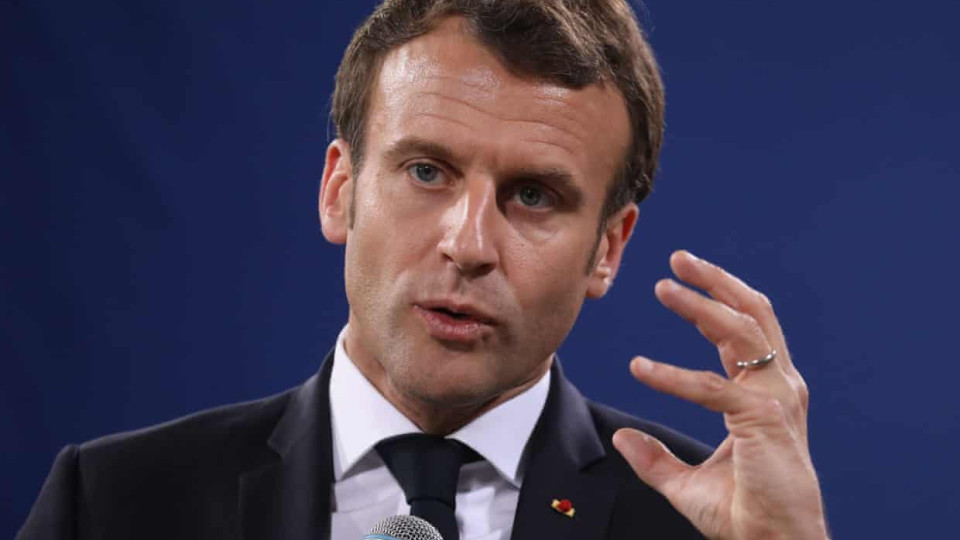


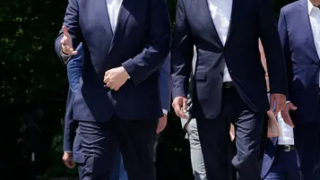






Leave a comment